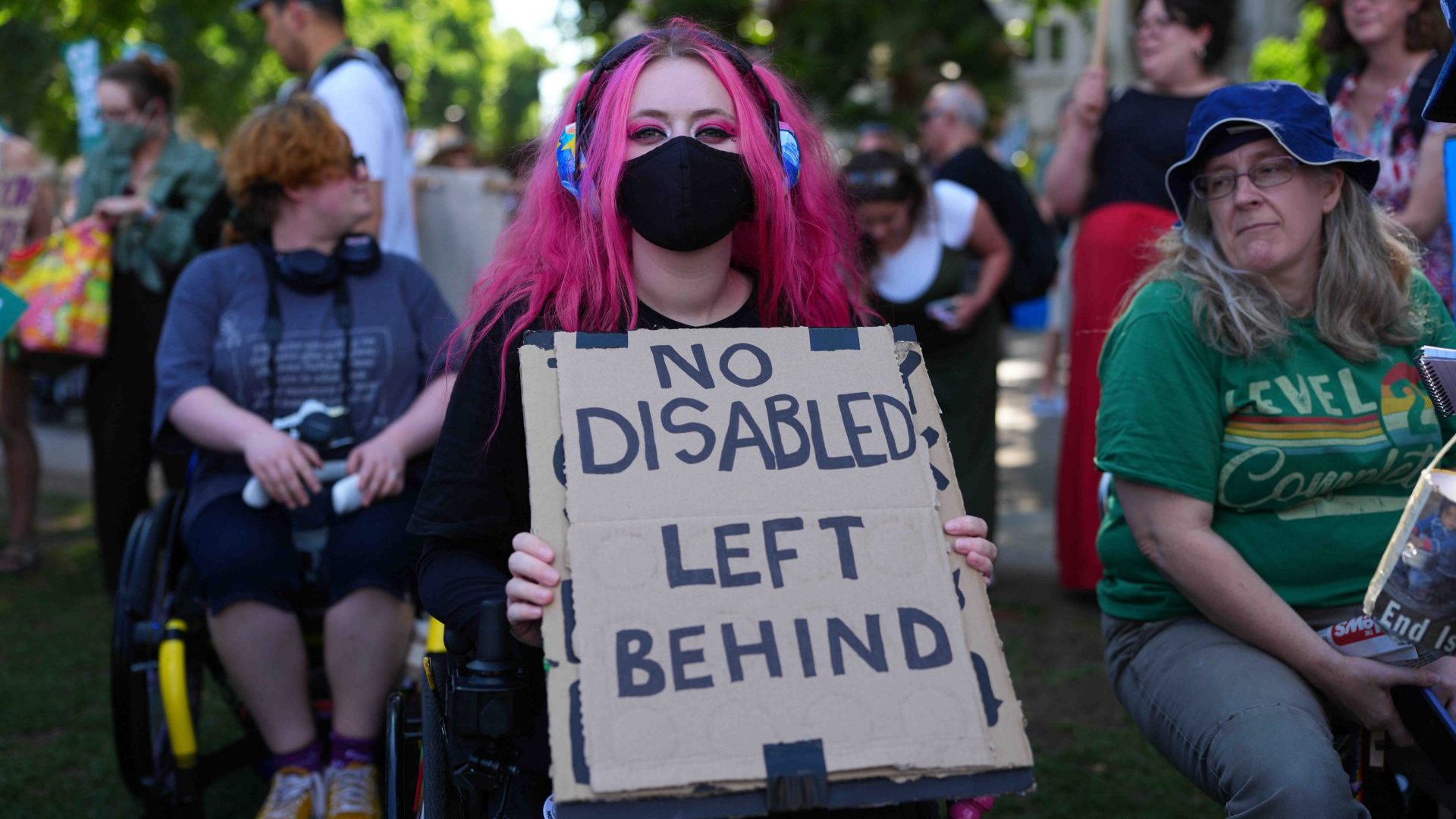What a way to mark the first year of the Starmer era. In the shadows of the Commons on Tuesday you could hear something of a fading whisper after months of campaigns, open letters, various statements and warnings – a call and response routine of sorts: “You cut (we bleed), you cut (we bleed.)”
In a ninety minute circus of changing promises and questions, the Welfare Reform Bill passed its first hurdle. You could have been forgiven for thinking the clock had turned back to the time of Cameron’s Austerity years.
The Welfare Reform Bill, Westminster gossip would suggest, was at times seen as an attempt to win Reform votes back for the Labour Party. A reminder, and an important point to remember at the next election: first, disability impacts nearly a quarter of the UK’s population; and second, it forms the world’s largest minority group, across gender and race.
A mass disabling pandemic has seen the growth of this group skyrocket, thanks to conditions such as Long Covid. There are more of us than ever before. Meanwhile, what policies do Reform actually stand for, that would be of benefit to disabled individuals, such that the Labour party is trying to pre-empt them? If you wanted to win over a large part of the electorate, surely we are the group to appeal to, not Reform voters.
What “moral cause” does the Labour Party even have to reform the welfare state? The party that gave us welfare almost eighty years ago seems to have lost sight of what it stands for. Peddling misinformation to win votes, seemingly, reveals many representatives of the people as out of touch.
Scope calculated that the extra cost of disability is an extra £1,095 per month; the Personal Independence Payment, PIP is a 2013 benefit that was designed to offset these costs, to pay for essentials such as mobility aids. PIP does not come anywhere close to covering such a sum; mobility aids such as wheelchairs are not just freely handed out.
PIP takes over a year to obtain, if you have the privilege and stamina to hold out until finally you have to confront a tribunal. The majority of these are overturned in favour of the claimant. You do not just skip a queue and fake a limp to get Personal Independence Payment; this involves degrading assessments from “assessors” who are not medically trained. And it has nothing to do with employment.
Suggested Reading


The welfare rebellion shows there’s no one driving Labour’s train
Let’s be totally clear on this – according to DWP accounting, fraud is estimated to be “less than 0%”. Though technically impossible, this shows the fear of fraud is dramatically overstated. Spending for welfare is not “spiralling” or “collapsing”. We know this thanks to the work of journalists such as John Pring at Disability News Service. Last year, half of what was set aside was not even claimed.
I have been a journalist all of my working life. To claim Personal Independence Payment, I had to overturn the original verdict at a tribunal, delivered by an assessor who thought it appropriate to deem me a liar. Just because I make it look easy, that should not detract from or invalidate the work I put in to function independently. The daily and monthly therapy, the canes, the various medications, appointments, strategies – I’d like to see anyone non-disabled try to walk in my clinically adapted shoes. Oh: but we just need a little much needed grit!
Around half of PIP claimants are in work, while these paused cuts were expected to impact women more. If you care about violence against women, you would care about this. Anyone can become disabled at any time; people have died at the hands of the welfare state – that is where “reform” should instead be concentrated. I count the many ghosts, and I have documented just some of their stories for my next book. I am beyond tired and despairing – why do people not care enough? Why do my colleagues deem it appropriate to not report accurately and fairly?
There is nothing about us without us – my community cares for others who come to us. We need you to care now about us, too. What happened this week, the start of Disability Pride Month, will impact everyone. We call on our allies, and we call on you to care.
Lydia Wilkins is the editor of Disability Review Magazine










